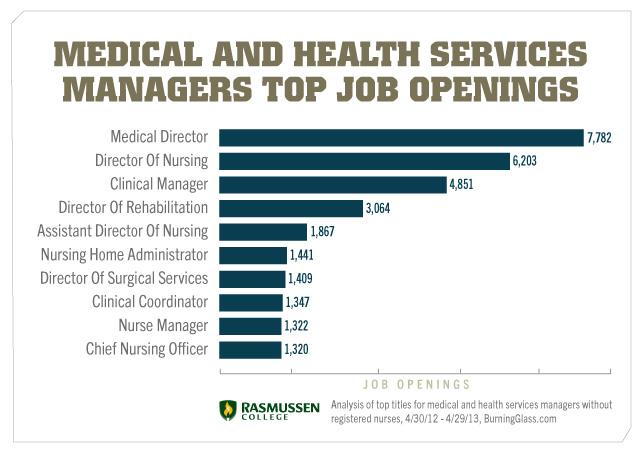Job Healthcare Management - The healthcare industry is constantly evolving and has become a vital aspect of our society. Healthcare professionals play a critical role in improving and maintaining the health of individuals and communities. With the rise of complex medical technologies and systems, there is a growing need for skilled healthcare managers who can effectively navigate this complex landscape. This is where healthcare management comes in. It involves the administration, management, and planning of healthcare systems and organizations to ensure efficient and effective delivery of quality healthcare services.
What is Healthcare Management?
Healthcare management is a field that focuses on the organization, administration, and management of healthcare systems and organizations. The primary goal is to ensure that healthcare services are delivered effectively and efficiently to meet the needs of patients and communities. Healthcare managers work in a variety of settings, including hospitals, clinics, nursing homes, and other healthcare facilities.
Who is a Healthcare Manager?
A healthcare manager is an individual who oversees the administrative and operational functions of a healthcare organization. They are responsible for managing staff, allocating resources, setting budgets, and implementing policies and procedures. Healthcare managers work closely with healthcare professionals, such as doctors, nurses, and allied health professionals, to ensure the delivery of quality healthcare services.
Top 20 Jobs for Health Care Managers

The healthcare industry is diverse, and there are numerous job opportunities available for healthcare managers. Here are the top 20 jobs in healthcare management:
- Healthcare Administrator
- Health Information Manager
- Clinical Manager
- Director of Nursing
- Medical Practice Manager
- Pharmaceutical Product Manager
- Healthcare Consultant
- Healthcare Business Analyst
- Health Plan Manager
- Managed Care Coordinator
- Healthcare Finance Manager
- Medical and Health Services Manager
- Home Health Administrator
- Chief Nursing Officer
- Emergency Services Manager
- Healthcare Risk Manager
- Public Health Manager
- Mental Health Program Manager
- Outpatient Services Manager
- Rehabilitation Services Manager
Career Opportunities in Healthcare Management You Didn't Know Existed

Healthcare management is a dynamic field that offers a wide range of exciting and rewarding career opportunities. Here are some healthcare management careers you may not have heard of:
- Healthcare Social Media Manager: These professionals are responsible for managing the social media presence of healthcare organizations, developing social media strategies, and engaging with patients and stakeholders.
- Healthcare Ethicist: These professionals address ethical issues in healthcare and develop policies to ensure that healthcare is provided in a fair and just manner.
- Medical Interpreter: These professionals bridge the communication gap between healthcare providers and patients who speak different languages.
- Healthcare Quality Analyst: These professionals analyze and evaluate the quality of healthcare services and develop strategies to improve patient outcomes.
- Healthcare Data Scientist: These professionals use data analytics to identify trends, patterns, and insights that can be used to improve healthcare delivery and patient outcomes.
Healthcare Management Hierarchy

The healthcare management hierarchy is the structure that outlines the different levels of management in a healthcare organization. Here is the typical healthcare management hierarchy:
- Chief Executive Officer (CEO): The CEO is responsible for the overall direction and management of the healthcare organization.
- Chief Operations Officer (COO): The COO is responsible for the day-to-day operations of the healthcare organization.
- Chief Financial Officer (CFO): The CFO is responsible for the financial management of the healthcare organization.
- Chief Nursing Officer (CNO): The CNO is responsible for the nursing staff and patient care services in the healthcare organization.
- Medical Director: The medical director is responsible for the medical staff and the quality of patient care in the healthcare organization.
- Department Manager: Department managers are responsible for the management of specific departments, such as nursing, pharmacy, or laboratory services.
- Team Leader: Team leaders are responsible for supervising and managing small teams within a department.
How to Succeed in Healthcare Management
Success in healthcare management requires a combination of skills, knowledge, and experience. Here are some tips to help you succeed:
- Develop strong leadership skills: Effective healthcare managers need to be strong leaders who can inspire and motivate staff.
- Stay current with healthcare trends: Healthcare management is a dynamic field, and it is essential to stay up-to-date with the latest trends and developments.
- Build a strong network: Networking is an important aspect of healthcare management. Building relationships with other healthcare professionals can provide valuable insights and opportunities.
- Develop business skills: Healthcare managers need to have a solid understanding of business principles, including finance, marketing, and human resources management.
- Continuously develop your skills and knowledge: Lifelong learning is essential in healthcare management. Continuously develop your skills and knowledge through training and education.
In conclusion, healthcare management is an exciting and rewarding field that offers a wide range of career opportunities. Whether you are interested in administration, operations, or policy, there is a healthcare management career that is right for you. By developing the skills, knowledge, and experience needed to succeed, you can make a meaningful difference in the lives of patients and communities.
Read more articles about Job Healthcare Management